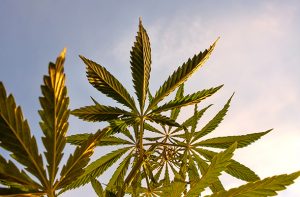 As I wrote in Part I of this series, the FDA firmly opines that the sale and marketing of most hemp-derived cannabidiol (hemp CBD) products is unlawful in the United States and has gone as far as describing CBD as a “potentially harmful substance.” Part II is dedicated to a brief examination of the state-by-state map of hemp CBD regulations across the country.
As I wrote in Part I of this series, the FDA firmly opines that the sale and marketing of most hemp-derived cannabidiol (hemp CBD) products is unlawful in the United States and has gone as far as describing CBD as a “potentially harmful substance.” Part II is dedicated to a brief examination of the state-by-state map of hemp CBD regulations across the country.
Even though hemp CBD is a no-no for the FDA, states have already adopted their own legal approaches to regulating hemp CBD products that are not necessarily consistent with the FDA’s current position and/or that altogether violate that position.
Some states, such as Colorado and Oregon, allow the manufacture and sale of all hemp CBD products, including foods, dietary supplements, smokable products, and cosmetics. Other states, like Idaho, Iowa, and Mississippi, strictly prohibit the production and/or sale of any such products unless hemp CBD is used for “medical treatment.”

5 Tips For Proving Your Legal Department’s Value
Join our expert panel on March 3rd at 1pm ET to explore actionable, emerging ways you can gather and proactively share the data that demonstrates the impact of your work.
A number of states, including California, Michigan, and Nevada, ban hemp CBD foods and dietary supplements but seem to take no issue, at least expressly, with the sale of other nonfood or nonbeverage products, such as hemp CBD cosmetics. And a handful of states, counting Kentucky and Texas, allow the sale and marketing of hemp CBD foods and dietary supplements but strictly prohibit the sale or restrict the processing and manufacturing of hemp CBD smokables within their borders.
To top it all off, some of the states that legalized the sale of hemp CBD products have their own set of regulations, including but not limited to registration and/or permitting, labeling, and testing requirements. In Louisiana, for example, hemp CBD cosmetics may only be sold by businesses that have established residence for two years prior to applying for and securing a CBD Dealer Permit from the Department of Revenue, Office of Alcohol and Tobacco Control. In Oregon, any finished hemp CBD product must be free of certain pesticides and contain no more than 0.3 percent total THC before it can be sold to end-use consumers. And in Utah, hemp CBD products must meet very specific labeling and marketing requirements, including but not limited to, labels containing a scannable bar code, QR Code, or web address linked to a document containing information pertaining to the product name, batch identification number, and a downloadable link to a certificate of analysis for the batch identified.
This patchwork of state-by-state regulations forces manufacturers and distributors of hemp CBD products to follow a variety of hemp CBD regulations in each state where these products are sold and must limit sales to jurisdictions in which hemp CBD products are deemed lawful -– all in the face of the FDA’s current enforcement position.
This wide range of often conflicting state regulations, combined with the lack of any formal federal legal pathway for the sale and marketing of hemp CBD products, makes it nearly impossible for hemp CBD stakeholders to meet compliance standards. Yet, the industry is begging to be regulated by the Feds. So far, the FDA has received over 4,000 comments from shareholders on the safety, manufacturing, product quality, marketing, labeling, and sale of hemp CBD products. Clearly, a uniform federal regulatory framework would better ensure uniform compliance, help legitimize a stigmatized industry, protect and educate consumers, and ultimately, boost the US economy. Of course, the states will likely still be free to set their own hemp CBD regulations, but at least everyone would be then be on an even federally lawful playing field. So, here’s to hoping that the FDA starts to serve its role of “coxswain” to help the CBD industry follow its course and succeed.

Transform Legal Reasoning Into Business-Ready Results With General AI
Protégé™ General AI is fundamentally changing how legal professionals use AI in their everyday practice.
Nathalie Bougenies practices in the Portland office of Harris Bricken and was named a “2019 Rising Star” by Super Lawyers Magazine, an honor bestowed on only 2.5% of eligible Oregon attorneys. Nathalie’s practice focuses on the regulatory framework of hemp-derived CBD (“hemp CBD”) products. She is an authority on FDA enforcement, Food, Drug & Cosmetic Act and other laws and regulations surrounding hemp and hemp CBD products. She also advises domestic and international clients on the sale, distribution, marketing, labeling, importation and exportation of these products. Nathalie frequently speaks on these issues and has made national media appearances, including on NPR’s Marketplace. Nathalie is also a regular contributor to her firm’s Canna Law Blog.